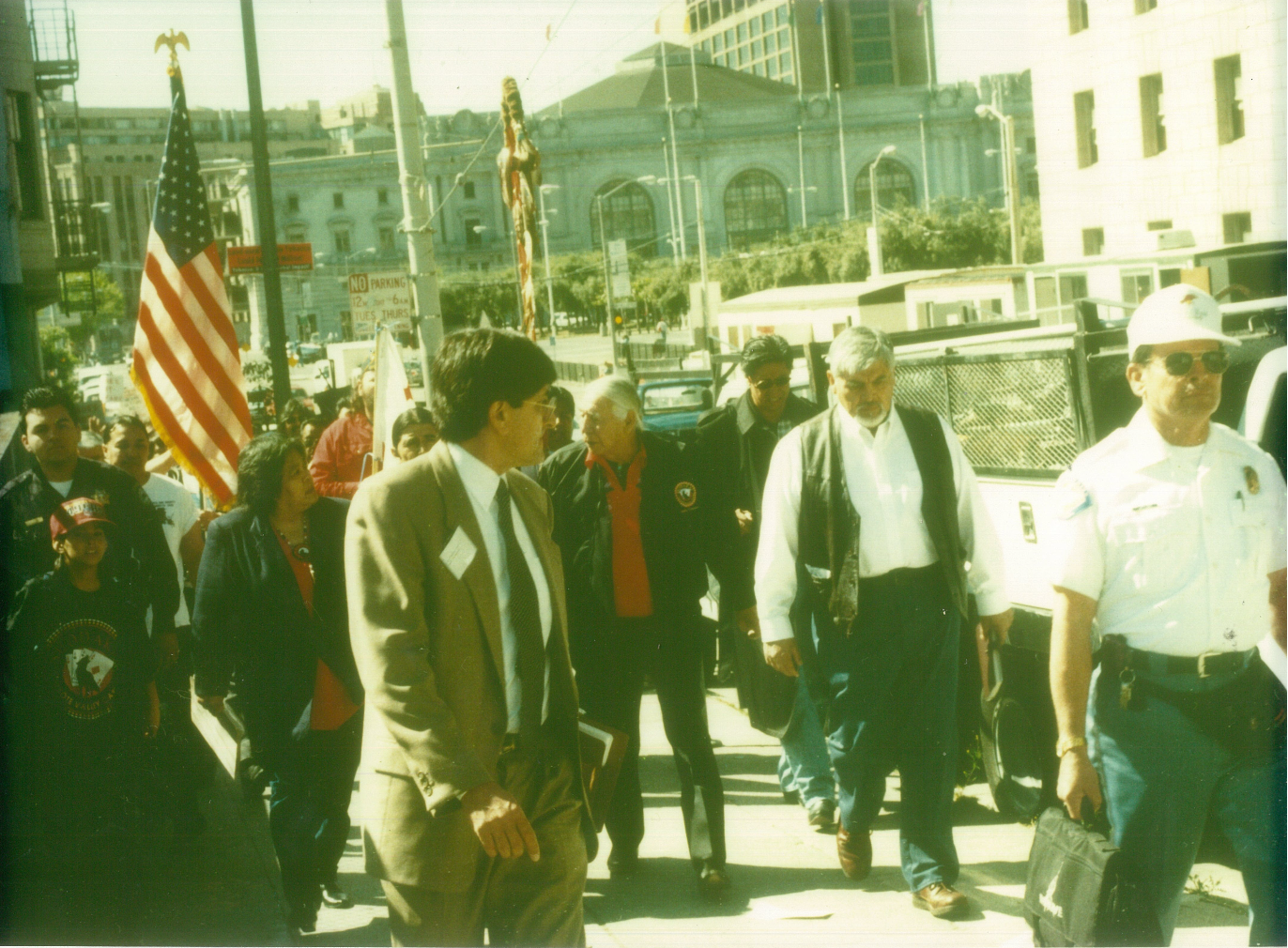
THE LAW OFFICE OF
LESTER J. MARSTON
Les Marston (Cahuilla)
is an attorney with over 40 years of experience representing Indian tribes, tribal entities, and individual Indians throughout the United States. Mr. Marston has litigated and won many significant cases impacting Indian country and bolstering principles of tribal sovereignty and self-determination.
-
Native American Law, Federal Indian Law, Tribal Law, Civil Law, Civil Litigation, Municipal Law, Indian Gaming, Business Law, Commercial Litigation, Real Estate Law, Land Use Law, Environmental Law, Water Law, Employment Law, Contracts, Indian Child Welfare Act, Construction Defects, Zoning, Civil Rights, Indian Taxation, Tribal Economic Development, Indian Hunting and Fishing Rights.
-
U.S. Supreme Court (1985);
U.S. Court of Appeals for the Ninth Circuit (1978);
U.S. Claims Court (1985);
U.S. Court of Appeals, Federal District (1985);
U.S. District Court for the Northern District of California (1978);
U.S. District Court for the Southern District of California (1978);
U.S. District Court for the Eastern District of California (1983);
U.S. District Court for the Central District of California (1990);
Supreme Court, State of California (1978);
Chemehuevi Indian Tribal Court (1985);
Colorado River Indian Tribe Tribal Court (1985);
Grand Ronde Tribal Court (1990);
Ho-Chunk Tribal Court (1996).
-
Marston and Fink, The Indian Commerce Clause: The Reports of its Death Have Been Greatly Exaggerated, 16 Golden Gate U.L. Rev., 205 (1986)
Marston, Lester J. “Statement of California Indian Legal Services Regarding Retrocession of Public Law 280 Jurisdiction” (1980) Justice in Indian Country, p. 154. Published by the American Indian Lawyer Training Program, Inc.
-
Please contact Ericka Duncan at 707-462-6846
Following his graduation from UC Hastings College of Law, Mr. Marston began his law career in the 1970s as a staff and directing attorney at California Indian Legal Services. There, Mr. Marston worked on the seminal case, Tillie Hardwick, et al. v. United States, which resulted in a settlement that restored federal recognition to 17 California Indian tribes and the restoration of their tribal land bases.
In 1982, Mr. Marston went into private practice. More recently, Mr. Marston and his legal team scored a decisive victory by prevailing against the State of California and Governor Gavin Newsom in the case, Chicken Ranch Rancheria, Blue Lake Rancheria, Chemheuevi Indian Tribe, Robinson Rancheria, and Hopland Band of Pomo Indians v. Newsom, 42 F.4th 1024 (9th Cir. 2022).
The Ninth Circuit, in that case, held that California and its governor failed to negotiate tribal-state gaming compacts in good faith by demanding that the tribes agree to compact provisions relating to family law, environmental regulation, and tort law that were unrelated to the operation of gaming activities and far outside the bounds of permissible negotiation under Indian Gaming Regulatory Act.
Mr. Marston and his team of experienced Indian law practitioners remain on the cutting edge of Indian law issues and dedicate a substantial portion of their work to advising tribal clients on major impact litigation to develop case law that benefits Indian tribes and people.
IN-HOUSE COUNSEL SERVICES
Mr. Marston and his legal team serve as in-house counsel to tribal governments and tribal entities. He has established and provided legal services to tax commissions, tribal court systems, police departments, housing authorities, fish and game departments, economic development corporations, gaming commissions, and tribal joint powers agencies. Mr. Marston regularly appears before and provides legal advice to tribal councils and arms of tribal governments. He has drafted numerous contracts utilized by tribal governments in the exercise of their governmental authority, including mutual and cross-deputization agreements between tribes and local governments, hunting and fishing agreements between tribes and states, construction contracts, partnerships, joint ventures, and development agreements. Mr. Marston has been involved in hundreds of fee-to-trust land acquisitions.
Mr. Marston meeting with representatives from the U.S. Department of the Interior and Assistant Secretary — Indian Affairs Kevin Gover urging the Interior Department to sue the State of California for its refusal to negotiate tribal-state gaming compacts.
SPECIAL COUNSEL SERVICES
Mr. Marston and his legal team also act as special counsel to Indian tribes and tribal entities on individual matters, such as tribal water rights negotiations and litigation. He was one of four lawyers chosen to represent 64 California Indian tribes in negotiations with the State of California that resulted in the 1999 tribal-state gaming compacts. Mr. Marston has drafted tribal-state gaming compacts and amendments, gaming management agreements, gaming equipment lease agreements, gaming consulting agreements, and all of the documents necessary to finance the design, planning, construction, development, and operations of gaming facilities, hotels, and ancillary facilities.
Mr. Marston seated at the center table during the 1999 tribal-gaming compact negotiations with the State of California.
LEGISLATIVE WORK
Mr. Marston and his legal team have additionally worked on significant legislation, including, but not limited to, drafting the 1988 amendments to the Indian Reorganization Act, 25 U.S.C. § 476; Sections 16000-16011 of the Fish & Game Code enacted by the California State Legislature, which authorizes the Department of Fish & Game to enter into fishing agreements with Indian tribes; and Sections 1730-1742 of the Code of Civil Procedure, “Tribal Court Civil Money Judgment Act,” enacted by the California State Legislature, which requires the state courts of California to recognize and enforce tribal court civil money judgments.
Mr. Marston builds long-lasting relationships with his tribal clients. He is a trusted and reliable resource for Indian tribes and individuals that seek representation in legal matters that arise in and impact Indian country.
References and CV are available upon request.

Mr. Marston marches alongside tribal leaders to the federal courthouse in San Francisco, California. March organized in support of the motion for summary judgment filed by Mr. Marston in the case, Chemehuevi Indian Tribe, et al. v. Wilson, et al.





